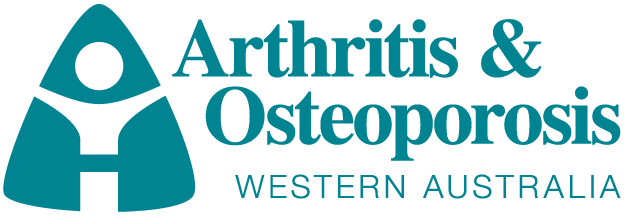Our 8th workshop was our most successful yet. We attracted 26 registrants: 18 physiotherapists; 2 psychologists; 2 nurses; and one each from general practice, occupational therapy, podiatry and rehabilitation. Registration was affordable, thanks to AOWA and WA Health Department for their sponsorship. Formal feedback indicates that all learning goals that we had set for participants were achieved.
We plan to attract more general practitioners to our next workshop by offering CE points through AOWA’s agreement with the Royal Australian College of General Practitioners.
Our five new Pain Champions thoroughly enjoyed the novel experience and their expectations were met. It was the first opportunity for them to learn of the practical difficulties often faced by health care professionals when delivering their services. All agreed that obtaining accurate information and advice on self-management of their painful condition(s) remained unmet needs in the community.
The enthusiastic support we received from Ric Forlano, CEO of AOWA, and from Jennifer Persaud and her team at AOWA considerably lightened the administrative load that we had previously both been carrying.
Melanie Galbraith and John Quintner (co-convenors)
Impressions from Ms Jennifer Persaud, Manager, Health, Education and Research (AOWA)
As an experienced Physiotherapist, I wanted to engage in pain education that would extend beyond the basics and provide an up-to-date, evidence-based learning opportunity. I was already aware of the Making Sense of Pain (MSOP) course as it is organised and hosted by my employing organisation – Arthritis and Osteoporosis Western Australia (AOWA). After exploring the course further, I enrolled and was hopeful that it would meet my learning needs.
The MSOP course ran at AOWA’s Shenton Park location on 21st to 22nd June 2018. The speakers formed an impressive line-up of clinicians and academics from various speciality areas and professions. Speakers used a variety of teaching styles and modalities to inform course participants across a range of topics, with highlights including:
• making a rational pain diagnosis;
• role of the multi-disciplinary team;
• engaging in ethical discourse with patients in pain;
• the effectiveness of medical treatment for persistent pain;
• role of the dysregulated stress response system in chronic pain;
• motivational interviewing;
• providing an accurate explanation for patients with persistent pain;
• impact of chronic pain across social, psychological, medical and functional domains; and
• use of validated assessment tools and outcome measures for those experiencing persistent pain.
Most of the concepts were not entirely new to me; however, the information was presented in an interesting and thought-provoking way. One lecture in particular (the role of the dysregulated stress response system in chronic pain) unravelled and demystified complex neurophysiological processes involved in chronic pain. I now have confidence that I will be able to translate this information in the clinical setting to provide patients with a credible explanation for their ongoing pain.
Another helpful insight was afforded through the review of pain terminology according to the International Association for the Study of Pain (IASP). Revision of the definitions provided clarity about the different types of pain and their underlying mechanisms which helped to form a useful construct to aid appropriate treatment planning.
I really appreciate that the course aimed to assist clinicians to apply learning in practice. An example was a Psychologist-led session which taught strategies to engage with patients who may feel stigmatised and alienated by their pain predicament. Simple counselling interventions were introduced that can be easily applied in the clinical environment.
A great strength of the course was its ability to attract people from diverse backgrounds. This provided a useful opportunity to learn about the skills that Allied Health, Medical, Nursing and other professionals bring to the management of chronic pain. It also presented ideal conditions for networking to occur, to enable continued discussion, interaction and learning. Of interest, was the consistent theme communicated by participants, that the course content is not limited to chronic pain as it is applicable across many clinical speciality areas.
It was not just the mustering of Health Professionals that left me with a good impression of the course. Indeed, the authentic examples given through the lived experience of patients with chronic pain who have become “Pain Champions” provided particularly helpful insights. Specifically, an afternoon was dedicated to break-out group sessions where Pain Champions shared their stories with course participants.
The opportunity to be liberated from the usual constraints of time, cost and resource enabled me to apply the skills learnt on the course and engage in active listening. Taking an inductive approach to the discourse between patient and health professional during the history taking was interesting and enlightening. The Pain Champions did not require prompts; rather, they spoke freely about their journey. In doing so, they problem-solved along the way and described the strategies to aid self-management of their condition. The Pain Champions also revealed impressions of their care journey and the professionals involved. This was both encouraging and confronting and provided an opportunity for learning, reflection and improvement as a clinician.
In summary, my overall impression of the course was a good one. I have come away having learnt new information and skills, as well as the confidence to apply learning in practice. I would recommend this course to any health professional seeking to improve their capabilities in the assessment and management of patients with persistent musculoskeletal pain. This course is likely to have particular appeal to clinicians who appreciate the biopsychosocial approach and value the concept of multi-disciplinary, patient-centred care to assist those with persistent musculoskeletal pain.





